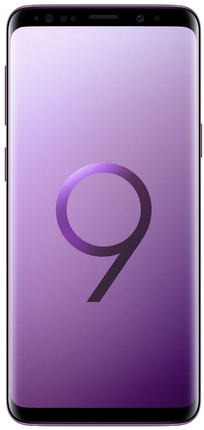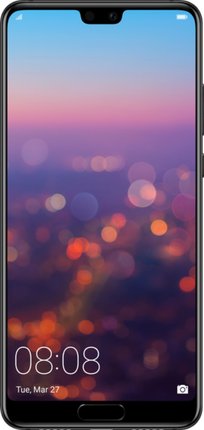Samsung Galaxy S9 vs Huawei P20
Short Description
Samsung Galaxy S9
Screen size: 5.8" / Resolution: 1440 x 2960 px / Main camera: 12 MP / Front camera: 8MP / RAM: 4GB / Battery power: 3000 mAh / Internal storage: 64GB, 128GB, 256GB / SIM cards: 1 SIM
Huawei P20
Screen size: 5.8" / Resolution: 1080 x 2224 px / Main camera: 20 MP & 12 MP / Front camera: 24MP / RAM: 4GB / Battery power: 3400 mAh / Internal storage: 128GB / SIM cards: 1 SIM
Key Differences
Samsung Galaxy S9
Huawei P20
How is Samsung Galaxy S9 better than Huawei P20?
Faster CPU speed: 4 x 2.9 GHz & 4 x 1.9 GHz vs 4 x 2.36 GHz & 4 x 1.84 GHz
More internal storage in max option: 64GB, 128GB, 256GB vs 128GB
Better display resolution: 1440 x 2960 px vs 1080 x 2224 px
Lighter: 163 g (5.75 ounces) vs 165 g (5.82 ounces)
Narrower: 68.7 mm (2.7 inches) vs 70.8 mm (2.79 inches)
Shorter: 147.7 mm (5.81 inches) vs 149.1 mm (5.87 inches)
More color options: Midnight Black, Coral Blue, Titanium Gray, Lilac Purple, Burgundy Red, Sunrise Gold, Ice Blue vs Twilight, Black, Midnight Blue, Pink Gold
Samsung Galaxy S9
Huawei P20
How is Huawei P20 better than Samsung Galaxy S9?
Bigger battery capacity: 3400 mAh vs 3000 mAh
More megapixels main camera: 20 MP & 12 MP vs 12 MP
More megapixels front camera: 24MP vs 8MP
Higher charging speed: 22.5W vs 15W
The phone is 1 month newer
Size Comparison
Samsung Galaxy S9
Huawei P20
Height
147.7 mm
(5.81 inches)
Width
68.7 mm
(2.7 inches)
Thickness
8.5 mm
(0.33 inches)
Screen size
5.8"
Weight
163 g
(5.75 ounces)
5.8"

5.8"
Height
149.1 mm
(5.87 inches)
Width
70.8 mm
(2.79 inches)
Thickness
7.65 mm
(0.3 inches)
Screen size
5.8"
Weight
165 g
(5.82 ounces)
Height
147.7 mm
(5.81 inches)
Width
68.7 mm
(2.7 inches)
Thickness
8.5 mm
(0.33 inches)
Screen size
5.8"
Weight
163 g
(5.75 ounces)
Height
149.1 mm
(5.87 inches)
Width
70.8 mm
(2.79 inches)
Thickness
7.65 mm
(0.3 inches)
Screen size
5.8"
Weight
165 g
(5.82 ounces)
3D comparison
Samsung Galaxy S9
Huawei P20
Samsung Galaxy S9
Huawei P20
Vote for Your option
Samsung Galaxy S9
Vote for Your option
Huawei P20
Benchmarks
CPU
Samsung Galaxy S9
137,633 +44.59%
Huawei P20
95,187
Measures the performance of a device's processor, focusing on tasks such as computing power and multi-core efficiency.
GPU
Samsung Galaxy S9
168,155 +61.17%
Huawei P20
104,334
Measures the graphical performance of a device's GPU, evaluating its ability to handle graphics-intensive tasks such as gaming and rendering.
Memory
Samsung Galaxy S9
86,184 +4.05%
Huawei P20
82,832
Measures the performance of a device's memory (RAM), measuring its speed and efficiency in handling multitasking and data-intensive applications.
UX
Samsung Galaxy S9
78,524
Huawei P20
90,088 +14.73%
Measures the overall user experience performance of a device, including factors like system responsiveness, touch sensitivity, and app launching speed.
3DMark Wild Life benchmark
Samsung Galaxy S9
2,272 +118.67%
Huawei P20
1,039
Is a cross-platform benchmark designed to test the graphical performance of devices under high GPU load.
3DMark Wild Life Unlimited benchmark
Samsung Galaxy S9
2,338 +150.05%
Huawei P20
935
Is a cross-platform graphical benchmark that tests a device's performance while eliminating the impact of screen resolution for more objective platform comparisons.
Geekbench 5 · Multi-Core
Samsung Galaxy S9
1,796 +21.52%
Huawei P20
1,478
Measures the aggregate performance of all processor cores in a device, simulating tasks optimized for multi-threaded processing in Geekbench 5.
Geekbench 5 · Single-Core
Samsung Galaxy S9
559 +60.17%
Huawei P20
349
Measures the performance of a single processor core in a device, evaluating its efficiency in handling single-threaded tasks in Geekbench 5.
PCMark Work 3.0 performance benchmark
Samsung Galaxy S9
6,286
Huawei P20
6,950 +10.56%
Measures a device's ability to handle everyday work tasks, such as web browsing, document editing, and video conferencing, focusing on CPU, GPU, memory, and storage performance.
PCMark Work 3.0 battery benchmark (minutes)
Samsung Galaxy S9
300
Huawei P20
458 +52.67%
Measures a device's battery life by simulating typical work tasks, such as web browsing, video playback, and document editing, to assess how long the battery lasts under normal usage conditions.
Battery Performance
Samsung Galaxy S9
Huawei P20
Comparison videos
Technical Specifications
Show differences
Show differences
Specs
Samsung Galaxy S9
Huawei P20
Design
Weight
163 g (5.75 ounces)
165 g (5.82 ounces)
Thickness
8.5 mm (0.33 inches)
7.65 mm (0.3 inches)
Width
68.7 mm (2.7 inches)
70.8 mm (2.79 inches)
Height
147.7 mm (5.81 inches)
149.1 mm (5.87 inches)
Is weather-sealed (splashproof)
✔
-
Ingress Protection (IP) rating
IP68
-
Waterproof depth rating
1.5 m
-
Volume
86.25 cm³
80.76 cm³
Is dustproof and water-resistant
✔
Water resistant
Color options
Midnight Black, Coral Blue, Titanium Gray, Lilac Purple, Burgundy Red, Sunrise Gold, Ice Blue
Twilight, Black, Midnight Blue, Pink Gold
French Repairability Index
-
5.8
Display
Screen size
5.8"
5.8"
Display type
OLED/AMOLED
IPS, LCD
Pixel density
570 ppi
428 ppi
Resolution
1440 x 2960 px
1080 x 2224 px
Refresh rate
60Hz
-
Has branded damage-resistant glass
✔
-
Gorilla Glass version
Gorilla Glass 5
-
Supports HDR10
✔
✔
Always-On Display
✔
-
Has a curved display
✔
-
Has a touch screen
✔
✔
Performance
Internal storage
64GB, 128GB, 256GB
128GB
RAM
4GB
4GB
Android version
Android 10
Android 8 Oreo
CPU speed
4 x 2.9 GHz & 4 x 1.9 GHz
4 x 2.36 GHz & 4 x 1.84 GHz
GPU clock speed
572 MHz
850 MHz
Has integrated LTE
✔
✔
RAM speed
1800 MHz
1600 MHz
Semiconductor size
10 nm
10 nm
Supports 64-bit
✔
✔
DirectX version
DirectX 12
DirectX 12
Has integrated graphics
✔
✔
OpenGL ES version
-
3.2
Uses big.LITTLE technology
✔
✔
CPU threads
8 threads
8 threads
Uses HMP
✔
-
Has TrustZone
✔
✔
Maximum memory bandwidth
28.7 GB/s
27.82 GB/s
OpenCL version
2
2
L2 cache
2 MB
-
DDR memory version
-
4
Maximum memory amount
8GB
-
L3 cache
4 MB
-
GPU execution units
-
12
Thermal Design Power (TDP)
-
9W
Shading units
-
192
Release date
2018
2018
Number of transistors
5.3 million
5500 million
Has NX bit
✔
✔
L1 cache
384 KB
64 KB
Memory channels
4
2
Has an external memory slot
✔
-
GPU turbo
-
900 MHz
Maximum amount of external memory supported
256GB
-
Bits executed at a time
128
128
VFP version
4
4
Cameras
Main camera
12 MP
20 MP & 12 MP
Front camera
8MP
24MP
Has built-in optical image stabilization
✔
✔
Video recording (main camera)
2160 x 60 fps
2160 x 30 fps
Wide aperture (main camera)
f/1.5
f/1.8 & f/1.6
Has a dual-tone LED flash
-
✔
Has a BSI sensor
✔
✔
Has continuous autofocus when recording movies
✔
✔
Has phase-detection autofocus for photos
✔
✔
Supports slow-motion video recording
✔
✔
Has a built-in HDR mode
✔
✔
Has a flash
✔
✔
Has manual exposure
✔
-
Has a dual-lens (or multi-lens) main camera
-
✔
Optical zoom
0x
2x
Number of flash LEDs
1
2
Has a CMOS sensor
✔
✔
Has manual ISO
✔
✔
Has a serial shot mode
✔
✔
Has manual focus
✔
✔
Has a front camera
✔
✔
Has manual white balance
✔
✔
Has laser autofocus
-
✔
Shoots raw
✔
✔
Has touch autofocus
✔
✔
Can create panoramas in-camera
✔
✔
Wide aperture (front camera)
f/1.7
f/2.0
Has timelapse function
✔
✔
Sensor size
5.76 x 4.29 mm
-
Pixel size (main camera)
1.4 µm
-
Shoots 360° panorama
✔
✔
Operating system
Has theme customization
✔
✔
Has dark mode
✔
-
Has customizable notifications
✔
✔
Supports split screen
✔
✔
Supports instant markup
✔
✔
Supports PiP and PaP
✔
✔
More languages supported
-
125
Can be used as a PC
✔
-
Has sharing intents
✔
✔
Has a child lock
✔
✔
Supports widgets
-
✔
Is free and open source
✔
✔
Tracks the current position of a mobile device
✔
✔
Is a multi-user system
✔
✔
Supports widgets
✔
-
The browser has word wrap
✔
✔
Has voice commands
✔
✔
Has offline voice recognition
✔
✔
More languages supported
125
-
Battery
Battery power
3000 mAh
3400 mAh
Has wireless charging
✔
-
Supports fast charging
✔
✔
Charging speed
15W
22.5W
Has a battery level indicator
✔
✔
Has a rechargeable battery
✔
✔
Battery life
24 hours
19 hours
Audio
Has stereo speakers
✔
-
Has LDAC
✔
-
Has aptX HD
-
✔
Has aptX
✔
-
Number of microphones
2
2
Has a socket for a 3.5 mm audio jack
✔
-
Has a radio
✔
-
Features
Wi-Fi version
Wi-Fi 5 (802.11ac), Wi-Fi 4 (802.11n)
Wi-Fi 5 (802.11ac), Wi-Fi 4 (802.11n)
Download speed
1200 MBits/s
1200 MBits/s
Upload speed
200 MBits/s
221 MBits/s
Has USB Type-C
✔
✔
USB version
3.1
2
Has NFC
✔
✔
SIM cards
1 SIM
1 SIM
Has a fingerprint scanner
✔
✔
Bluetooth version
5
4.2
Has a gyroscope
✔
✔
Has GPS
✔
✔
Has a compass
✔
✔
Supports Wi-Fi
✔
✔
Has a cellular module
✔
✔
Has a barometer
✔
-
Supports Galileo
✔
✔
Has an accelerometer
✔
✔
Supports ant+
✔
-
Has an iris scanner
✔
-
Head SAR (eu)
0.32W/kg
-
Is DLNA-certified
✔
-
Has a heart rate monitor
✔
-
Body SAR (US)
0.75W/kg
-
Head SAR (US)
0.44W/kg
-
Disclaimer! NFC, GSM network support, and some other specs can be different depending on the country.
Vote for Your option
Samsung Galaxy S9
Vote for Your option
Huawei P20



























